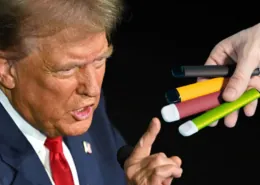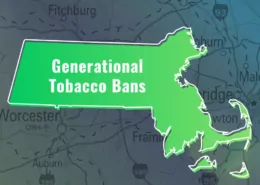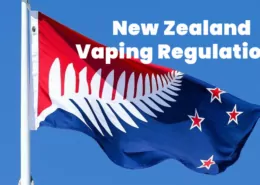New Zealand Government to Ban Disposable Vapes
In a significant move to combat the rising trend of youth vaping, the New Zealand government has announced a complete ban on single-use e-cigarettes, also known as disposable vapes. The decision comes months after the country abandoned a controversial plan to prohibit the sale of tobacco cigarettes to people born after 2008.
Associate Health Minister Casey Costello unveiled the changes to New Zealand’s Smokefree Environments and Regulated Products Act on Wednesday, emphasizing the government’s commitment to tackling youth vaping and driving down smoking rates. “The rapid rise in youth vaping has been a real concern for parents, teachers, and health professionals,” Costello stated.
In addition to the ban on disposable vapes, the government has introduced a series of measures aimed at curbing youth smoking. Fines for retailers caught selling regulated products like vapes and cigarettes to minors will be increased tenfold, from NZ$10,000 (about $6,000) to NZ$100,000 ($60,000). The New Zealand Cabinet has also reconfirmed a range of smoking-related regulations set to take effect on March 21, including a ban on vaping products with images of cartoons or toys on the packaging and limiting flavor names to generic descriptions. Reusable vape products will have until October 1 to include removable batteries and child-proofing mechanisms.
Costello acknowledged that while reusable vapes remain available for adults as a key smoking cessation device, too many teenagers are using disposable vapes due to their affordability and ease of access. The government aims to achieve the Smokefree goal of less than 5% of the population smoking daily by 2025, with current figures showing that 6.8% of the population smoked daily as of last year.
New Zealand joins a growing list of countries taking action against disposable vapes. The United Kingdom announced a similar ban in January, while Australia has prohibited the importation of disposable vapes since January 1. According to the World Health Organization (WHO), as of December last year, 34 countries had banned e-cigarettes, while 74 countries had no vape regulations in place.
However, not everyone in New Zealand supports the ban on disposable vapes. Connor Molloy, a spokesperson for the right-wing pressure group New Zealand Taxpayers’ Union, warned that the ban could drive people back towards smoking and encourage a black market of unregulated vaping products, as seen in Australia. Molloy argued that the ban would make it harder and more expensive for people to quit smoking, instead encouraging them to remain or revert to smoking, or to consume black market vaping products with unknown risks.
The World Health Organization has maintained that vapes are not shown to be effective for quitting tobacco use at the population level and has urged governments worldwide to ban their sale to all ages or implement measures that would dissuade the public, particularly children, from using them.
As the debate over the effectiveness and safety of disposable vapes in curbing smoking rates continues, New Zealand’s decision to ban these products marks a significant step in the country’s efforts to protect its youth from the harms of smoking and vaping.
News source: Reuters
- Tips for Creating a Consistent CBD Ritual That Sticks - August 16, 2025
- Cambodia: Phnom Penh Bans Smoking & Vaping on “Walk Street” - August 16, 2025
- Mexico City Congress Approves Ban on Vapes & E-Cigs - August 16, 2025








